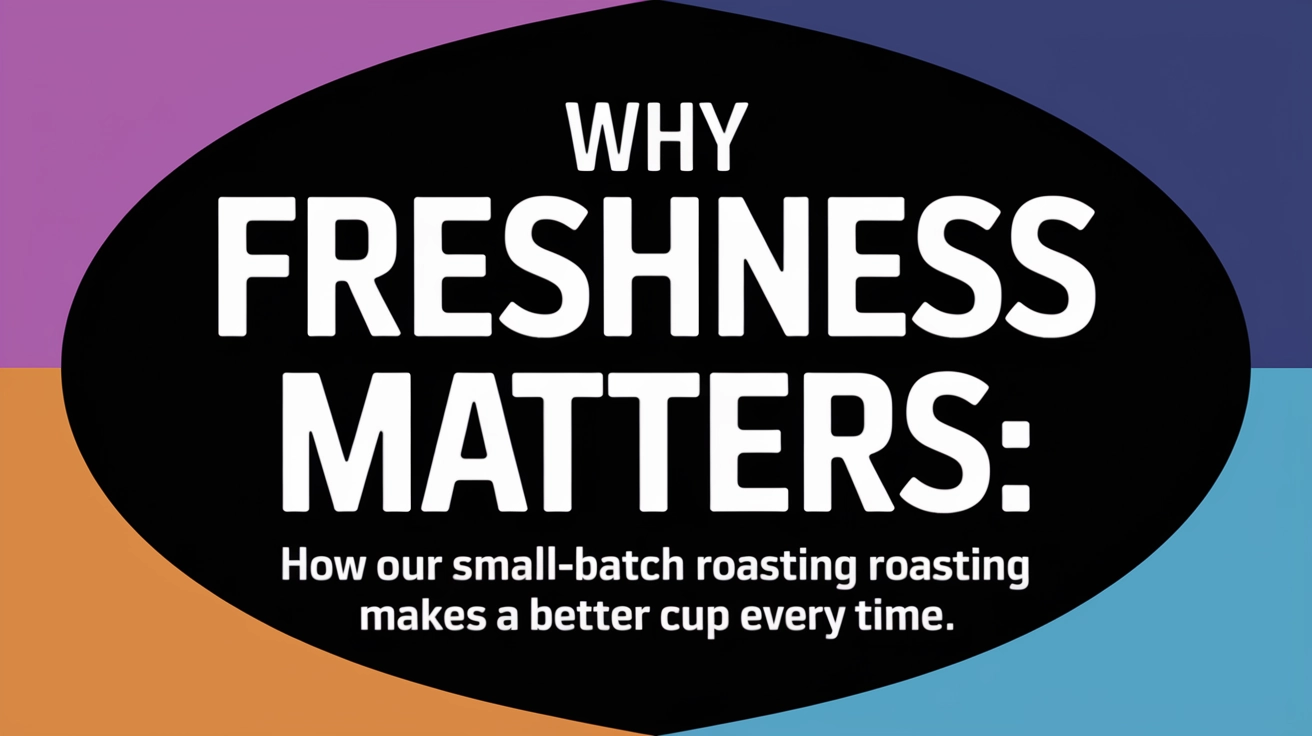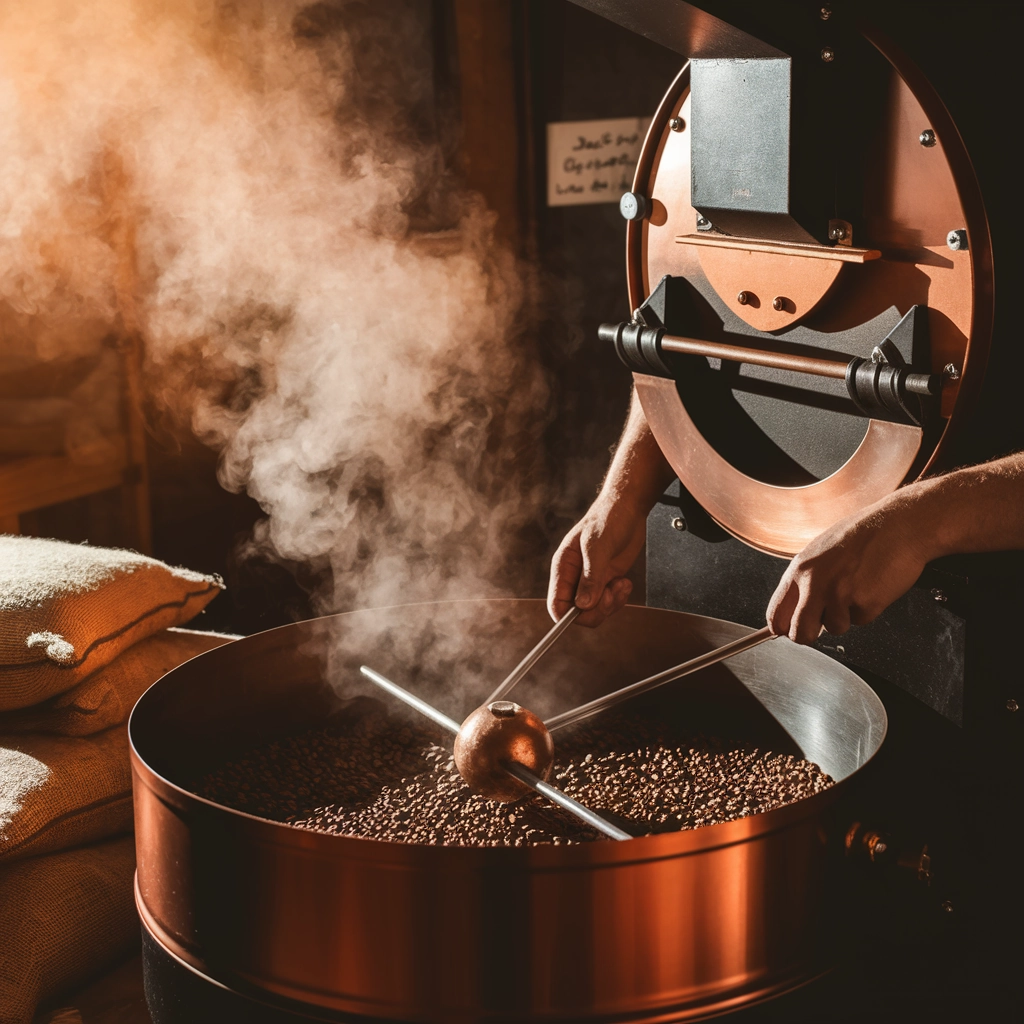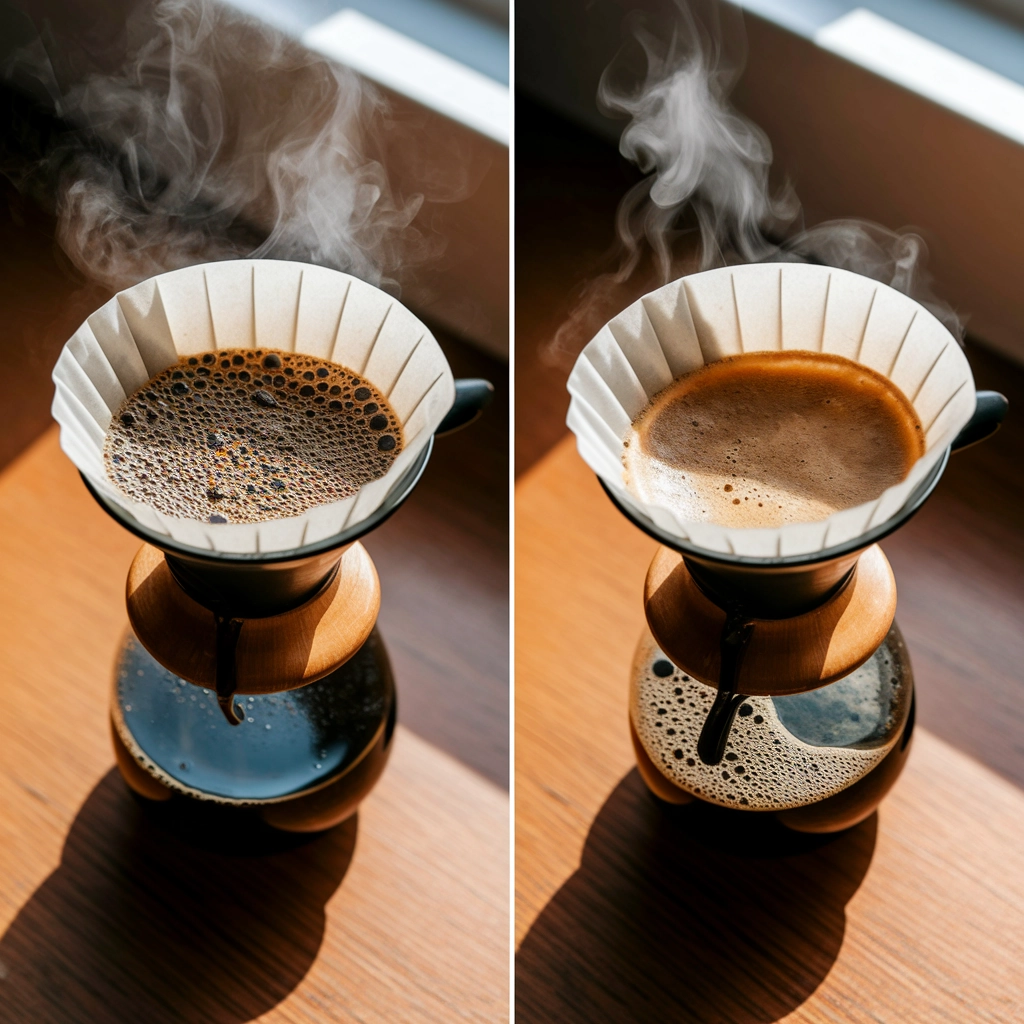Why Freshness Matters: How Our Small-Batch Roasting Makes a Better Cup Every Time

Have you ever taken that first sip of a truly fresh cup of coffee and thought, "Wow, I didn't know coffee could taste like this"? That moment of coffee clarity isn't just in your head. At Carolina Coffee Works, we're obsessed with that moment—and we've built our entire roasting philosophy around making sure you experience it with every cup.
The Ticking Clock: Why Coffee Freshness Fades
Coffee beans might look solid and shelf-stable, but they're actually quite the opposite. From the moment beans leave the roaster, they begin a journey of transformation—and not the good kind. Unlike fine wine, coffee doesn't get better with age.
Here's what's actually happening to those beans as they sit:
- Carbon dioxide release: Freshly roasted beans contain CO2, which creates that beautiful crema on espresso and helps carry aromatic compounds. As beans age, this gas escapes.
- Oxidation: Oxygen is coffee's nemesis. The longer beans are exposed to air, the more their oils oxidize, creating flat, cardboard-like flavors.
- Moisture exchange: Coffee beans are hygroscopic, meaning they readily absorb moisture and odors from their environment, altering their flavor profile.
The result? By the time most store-bought beans reach your grinder, they've already lost much of what makes coffee magical. That's why at Carolina Coffee Works, we've committed to a different path.

The Problem with Big Batch Production
Mass-produced coffee faces a fundamental challenge: time. The journey from roasting facility to warehouse to distribution center to store shelf to your home can take weeks or even months. Coffee roasters know this, which is why many over-roast their beans.
Darker roasts mask the staleness and inconsistencies that develop over time. But they also burn away the delicate floral notes, bright acidities, and unique characteristics that make specialty coffee special in the first place.
It's a bit like buying a beautiful bouquet of flowers that's been sitting in the cooler for three weeks—sure, they're still flowers, but you've missed their peak beauty.
Small-Batch Roasting: Craftsmanship in Every Bean
So what exactly is small-batch roasting, and why does it make such a difference?
At Carolina Coffee Works, we define small-batch as roasting in quantities typically under 15 pounds at a time, with intense attention paid to each batch's development. Unlike industrial roasters that process hundreds or thousands of pounds per hour, our approach is more like a chef preparing a special meal than a factory producing widgets.
This smaller scale allows us to:
- Monitor the beans' development in real-time
- Make minute adjustments to temperature profiles
- Listen for the crucial "first crack" and "second crack" sounds
- Respond to the unique characteristics of each batch
- Ensure even roasting through consistent air flow
When we roast in small batches, we're able to bring each coffee to its ideal expression—highlighting the characteristics that make it special, whether that's the bright berry notes of an Ethiopian or the chocolate richness of a Colombian.

Our Small-Batch Process: From Green to Perfect
At Carolina Coffee Works, freshness begins with our sourcing. We select specialty-grade beans from sustainable farms and cooperatives, ensuring we start with excellent raw materials.
Our roasting process follows these crucial steps:
- Pre-roast analysis: We assess moisture content, density, and bean size to determine the ideal roasting profile.
- Small-batch loading: We load only what we can properly attend to—usually between 5-15 pounds per batch.
- Hands-on monitoring: Our roasters watch, smell, and listen throughout the process, making micro-adjustments as needed.
- Development tracking: We use specialized software to track temperature curves, but the human element remains paramount—our experienced roasters know when a coffee has reached its sweet spot.
- Rapid cooling: Once roasted, beans are quickly cooled to halt the roasting process precisely when desired.
- Proper packaging: We package in valve-sealed bags that allow CO2 to escape while preventing oxygen from entering.
- Immediate availability: Most of our coffees are available within 48 hours of roasting, ensuring peak freshness.
This process creates a fundamentally different product than what you'll find in grocery stores or even in many coffee shops that don't roast their own beans.
The Small-Batch Advantage: 5 Ways It Makes Your Cup Better
1. Precision Quality Control
With small batches, nothing gets past us. We can spot and address any inconsistencies immediately, ensuring every bag meets our standards. If a batch doesn't turn out perfectly, we don't sell it—simple as that. When you're roasting thousands of pounds at once, this level of scrutiny becomes impossible.
2. Bean-Specific Optimization
Different coffee varieties have unique density, moisture content, and cell structure. Small-batch roasting allows us to tailor our approach to each specific bean's needs.
For example, our high-grown Ethiopian beans require a different heat application than our Brazilian selections. Mass roasters typically use one-size-fits-all profiles that can't highlight these differences.
3. Seasonal Adaptability
Coffee is an agricultural product that changes with the seasons. Even beans from the same farm can vary from year to year. Our small-batch approach allows us to adapt to these subtle changes, bringing out the best in each harvest.
4. Experimentation and Innovation
Small batches give us room to play and innovate. We can test new profiles, blend combinations, and roasting techniques without committing large amounts of coffee. This freedom to experiment leads to discoveries that eventually make their way into our core offerings.
5. Relationship to Time
Perhaps most importantly, small-batch roasting changes our relationship with time. We roast frequently in small amounts rather than large batches that sit in inventory. This means the coffee you receive was likely roasted just days—not weeks or months—before it reached you.

How to Identify Truly Fresh Coffee
Not all "fresh" coffee is created equal. Here's how to spot the real deal:
- Look for a roast date: Not a "best by" date. At Carolina Coffee Works, we proudly roast to order to ensure the freshest coffee.
- Check for a valve: One-way degassing valves on bags indicate proper packaging that allows CO2 to escape while keeping oxygen out.
- Observe the bloom: When brewing fresh coffee, you'll notice a beautiful "bloom" when hot water first hits the grounds—a bubbling expansion as CO2 is released.
- Trust your nose: Fresh coffee has a vibrant, aromatic quality that jumps out of the bag. If you don't get that intense coffee aroma when opening the bag, it's past its prime.
- Examine the beans: Fresh beans should have a slight sheen from their natural oils (especially medium to dark roasts). Excessively oily beans often indicate either extreme darkness or age.
Maintaining Freshness at Home
Once you've got your hands on our freshly roasted beans, here's how to keep them at their best:
- Store properly: Keep beans in an opaque, airtight container away from light, heat, and moisture. Contrary to popular belief, refrigerators are not ideal for coffee storage.
- Buy appropriate quantities: Coffee is at its peak for about 2-3 weeks after roasting. Buy what you'll use in that time frame rather than stocking up.
- Grind just before brewing: Whole beans maintain freshness much longer than ground coffee. Invest in a quality burr grinder and grind only what you need for each brew.
- Consider subscription delivery: Our subscription service ensures you always have freshly roasted coffee without thinking about reordering.
The Bottom Line: Taste the Small-Batch Difference
At Carolina Coffee Works, we believe that coffee is more than just a caffeine delivery system—it's a complex, nuanced beverage worthy of the same respect given to fine wine or craft beer. Our small-batch approach honors the farmers who grew the beans, the unique environments that shaped them, and you, the discerning coffee drinker who can taste the difference.
The proof, as they say, is in the cup. We invite you to experience the vibrant flavors, rich aromas, and distinctive character that only truly fresh, small-batch coffee can deliver. Your morning routine deserves nothing less.
Ready to taste the small-batch difference? Browse our current specialty coffee selections. Your perfect cup is waiting.

